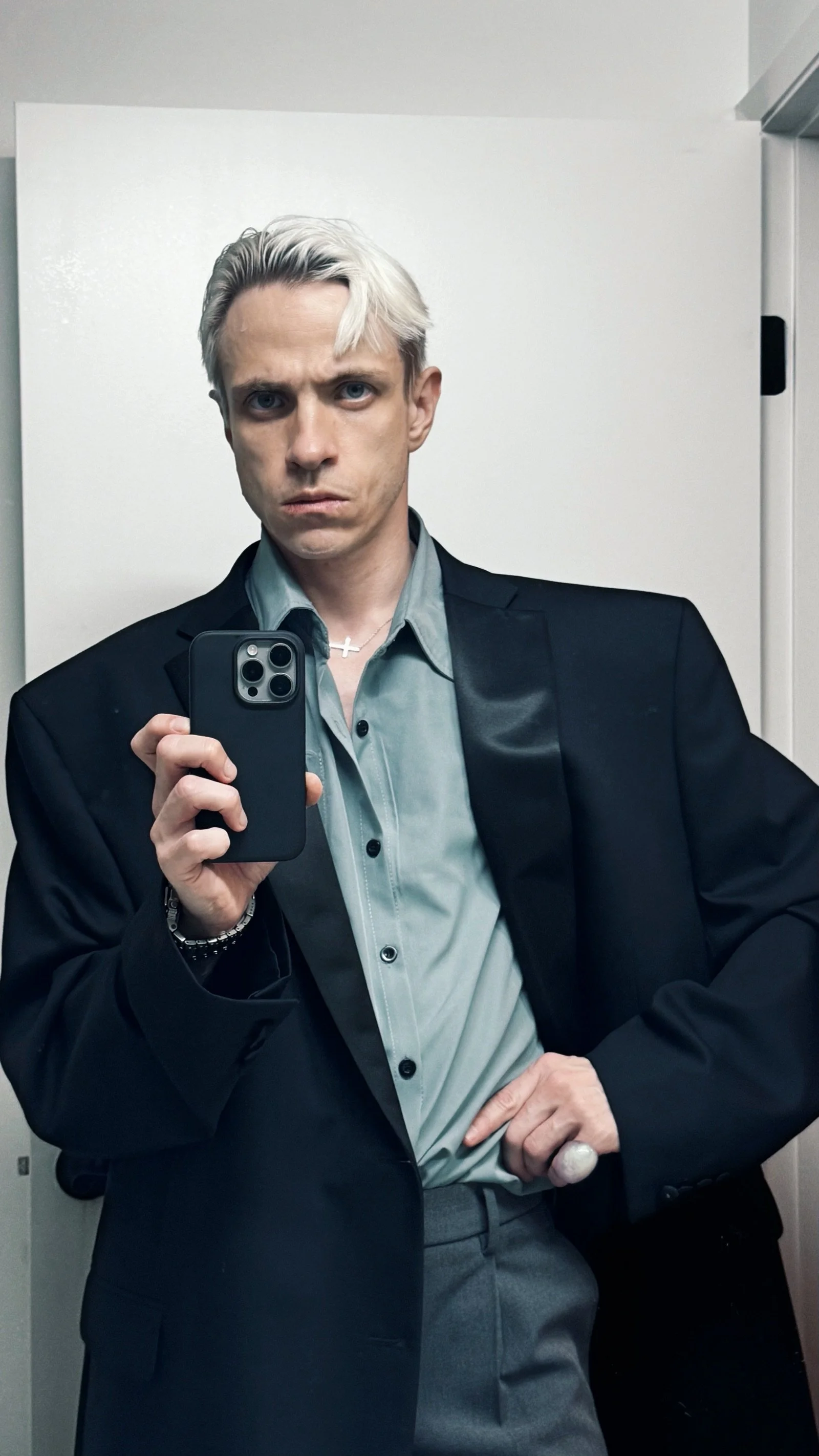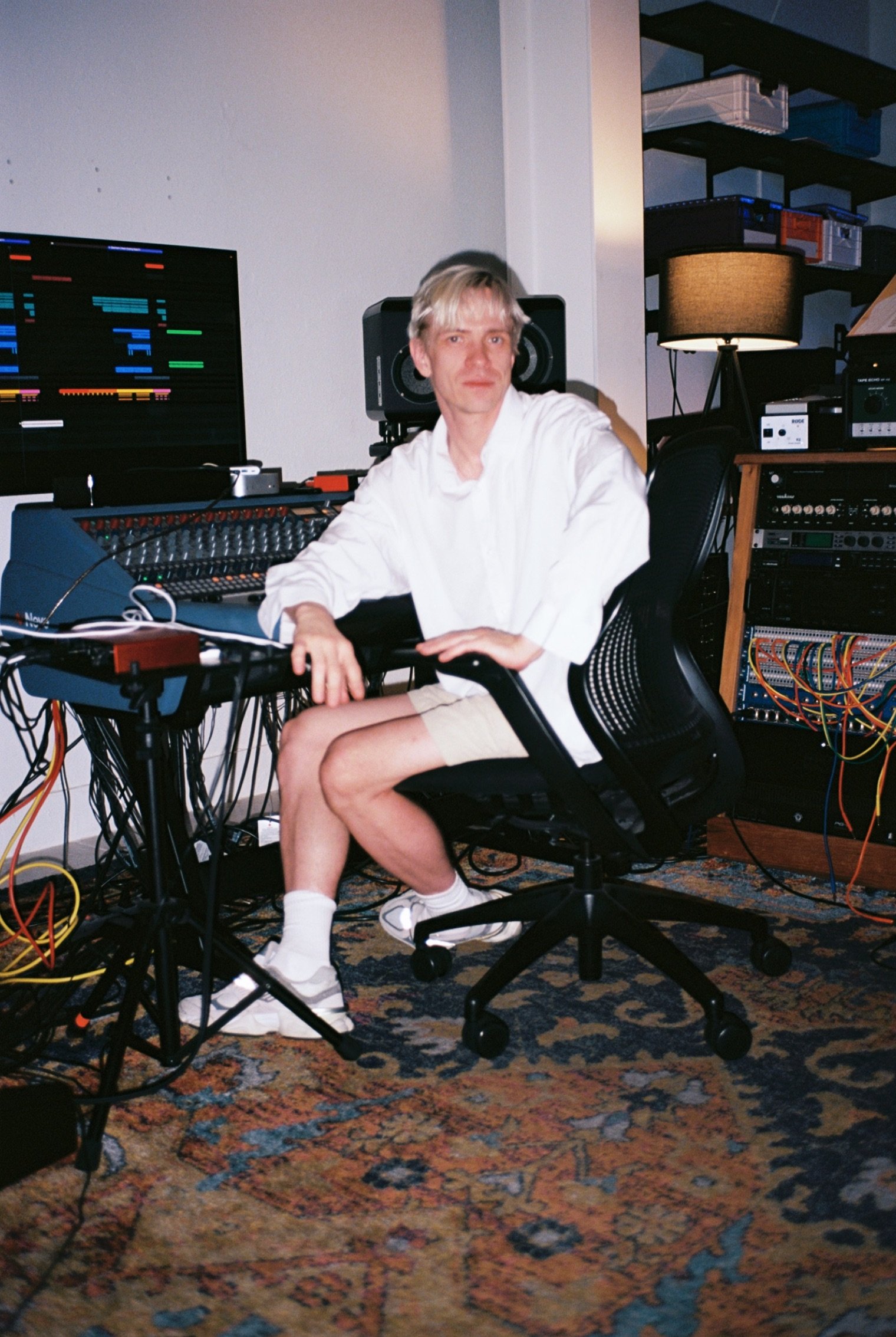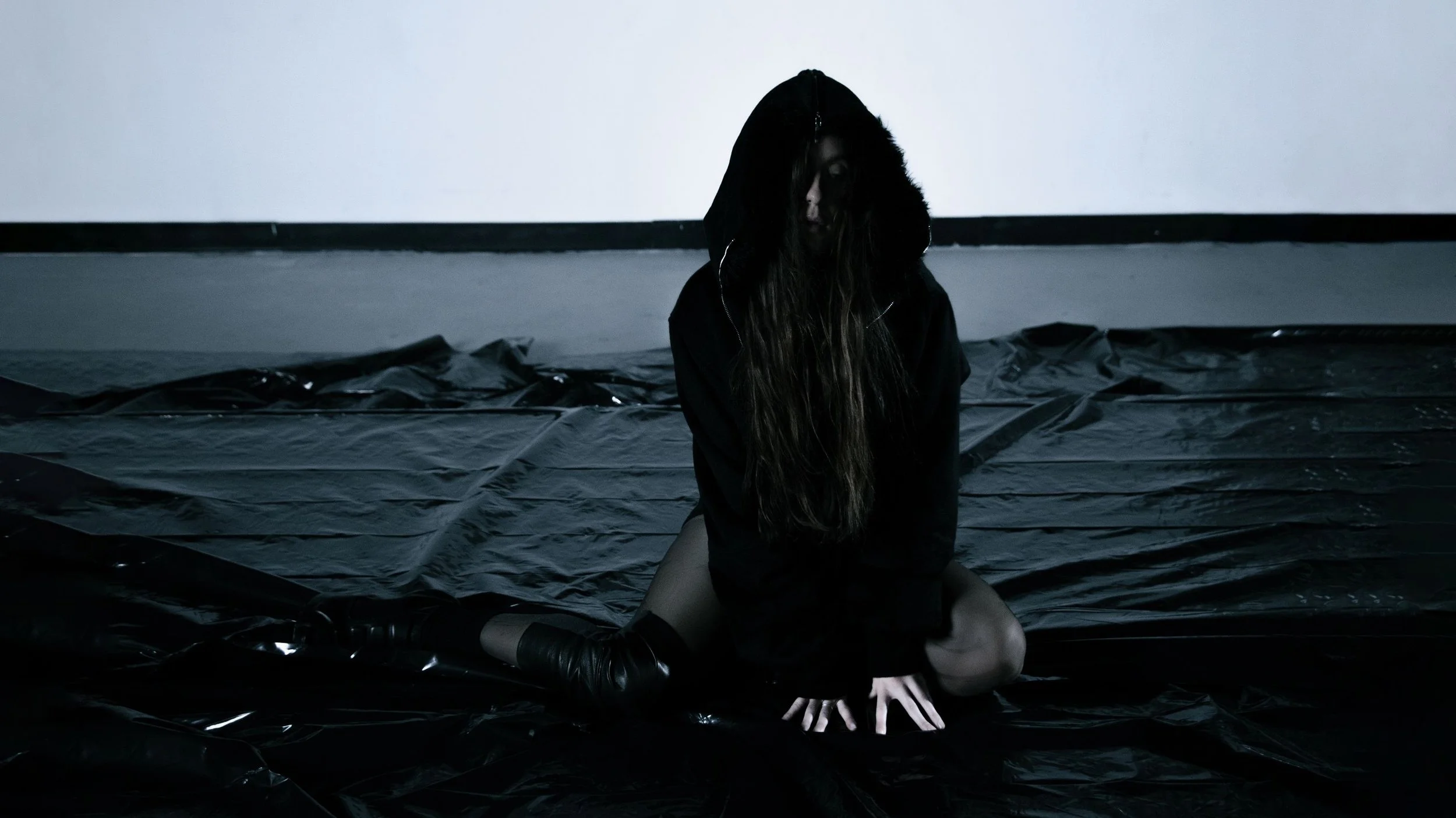Mujuice
There’s a quiet gravity to Mujuice that draws from contradiction. For him, music is less an act of performance than of perception; less body, more concept. “I don’t feel like a musician,” he says. “For me, music is something you have in your mind first.” We speak about his routine in LA, destiny, the ever-changing approach to music, and the feeling of fulfilling your destiny as an artist. Keeping a busy schedule between scoring films, composing commercials, and producing immersive dance sets, Mujuice refuses to settle for either commerciality or artistry. He can have it all. But it’s not that simple; there is a fine balance to be kept. His sound oscillates between the tender and the oppressive; a marriage of acid-house velocity and hard-bass techno. The result? A dialogue between chaos and perfectionism, instinct and mastery; a perfectly curated set by Mujuice.
In conversation, Roman is thoughtful, disarmingly honest, often circling back to the idea of balance between control and surrender, creation and erasure. For him, the dance floor is not an escape but exchange: a space where performance dissolves into conversation, and rhythm becomes a language of mutual recognition.
How are you, Roman?
I'm great. LA is having a heatwave right now for some reason, even though it's kind of autumn time. So, we are having like Indian summer. Definitely not proper for seasonality.
Do you miss the cold winter? Do you miss seasons? I feel like L. A. just doesn't do seasons at all.
Exactly. That's the worst part. There is the temporal continuum. Yes, there's no stages anymore, no difference. Like when somebody is asking, Do you remember when this happened? And you have no idea because there's no anchors anymore. You don't know if it was fall, or spring, or winter. It's pretty much the same thing.
So many of our memories are kept in the sentiment of, oh yeah, last summer, or yeah, I remember that winter.
In LA, there's no way to pinch yourself and wake up and understand what time of year this is.
Do you feel a fragmentation within yourself between when you are Mujuice and when you are everyday Roman? Do you have to pinch yourself?
Ah, I can answer your question. You didn't ask about origin of Mujuice, but technically, this was my folder for music from 13 years old, so it's basically just a sequence of letters. It's not my nickname; it's my artist alias, and nobody's real life calls me that way. So the simple answer is, it's just for releasing music and all that stuff.
““There is self-awareness, and it’s not random — there is a pattern to my love of certain things. There is a sense of direction, always a sense of destiny.””
What is your routine for creating in your everyday life?
Well, I believe that lots of artists would answer like they're doing a lot of different stuff, but I really do a lot of different stuff. I mean, I'm composing scores; I do ads, commercials, etc. Also, I have a very weird temperament. I'm very eclectic. Maybe it's wrong to blame Moscow or the cultural environment, but it is who I am. I like very different stuff. And so my creative output depends on what I'm working on currently. But pretty much here in LA, I work at my best friend's studio. I'm not sure if you're a synth person, but he is a famous synthesizer designer, Roman, from Black Corporation. It is technically a Japanese brand; he used to live there for a long time. By the way, he has the same name, which is not very typical for the name Roman. And yeah, we got along, and I work at his studio.
Obviously, I listened to your music and I don't know why, but I thought that it would be — harsher? Or a more abrasive, argumentative. But it's quite soft, especially the vocals.
It's gonna be harsh on the dance floor, I promise. I mean the problem here we started with the alias, with the nickname, and I'm weird and I never had problems with having everything I do under the same alias. So on the dance floor with my acid house, I wouldn't say that I'm extremely hard, but I'm getting dark and getting pretty edgy and oppressive. But I like it when it's changing, since my mood is changing constantly, so that's my reality. Cinematic, depressive, but strobe, very fast changes. It's hard for me to stick to one thing for too long.
How do you think your approach to music and the music itself has changed over the last 13 years, since you started?
I've been, metaphorically speaking, in an orbit circling the same kind of gravity of my tastes. So there is self-awareness and it's not random — there is a pattern to my love of certain things. There is a sense of direction, always a sense of destiny.
““I don’t feel like a musician. For me, music is a concept — something you have in mind first.””
What is the one thing that has lived up to your expectations now that you are an established patron of the scene, and what is the one thing that has been completely disappointing?
My father insisted that I work as a graphic designer. We had a scandal in our family when I told them that I didn't want to go to the institute; I wanted to do music. Those were actually the best years of my life. I don't feel like a musician, and I do feel kind of different often when I'm speaking to my fellow musicians. I don't really care about music in a way that music is physical, or, to me, in a way that it relates to the body. For me, music is a concept; it's something you actually have in mind first. I still feel some deep balance — because music is a very personal thing for me, extremely personal. I have to calm and soothe my anxiety and ambitions. Having both this artistic and commercial task lined up simultaneously feels weird.
So does the awkwardness come from music being such a personal thing and then being forced to perform that to other people, or does it come from the process itself?
Since I have this horrible eclectic taste, and I gravitate toward different points of gravity, it takes a lot of energy. Usually, people have just one initial awkwardness, and then they go on with a certain trick that works for them. I kind of have to burn it all down each time and start basically all over again.
The clubbing/rave scene around the world is about having a safe space to let go, freedom, and liberation. What is the, like you said, gravitational point of your freedom? What keeps you sane and grounded?
I mean, the world is not a sane place right now. Having this kind of tension on the dance floor is crucial. I mean it because I can compare it; because I know what it's like to sing on stage, and it's so different. It’s scripted. Everything is very step by step — but on the dance floor, you really have to engage in conversation. That is what makes it special for me. So this is kind of sanity; you can check yourself to others, and it's a real synchronization. Probably this rhymes well with my psyche. That’s my gravity.
Interview by NOA FISCHER
Event @fetchish_net
What to read next













